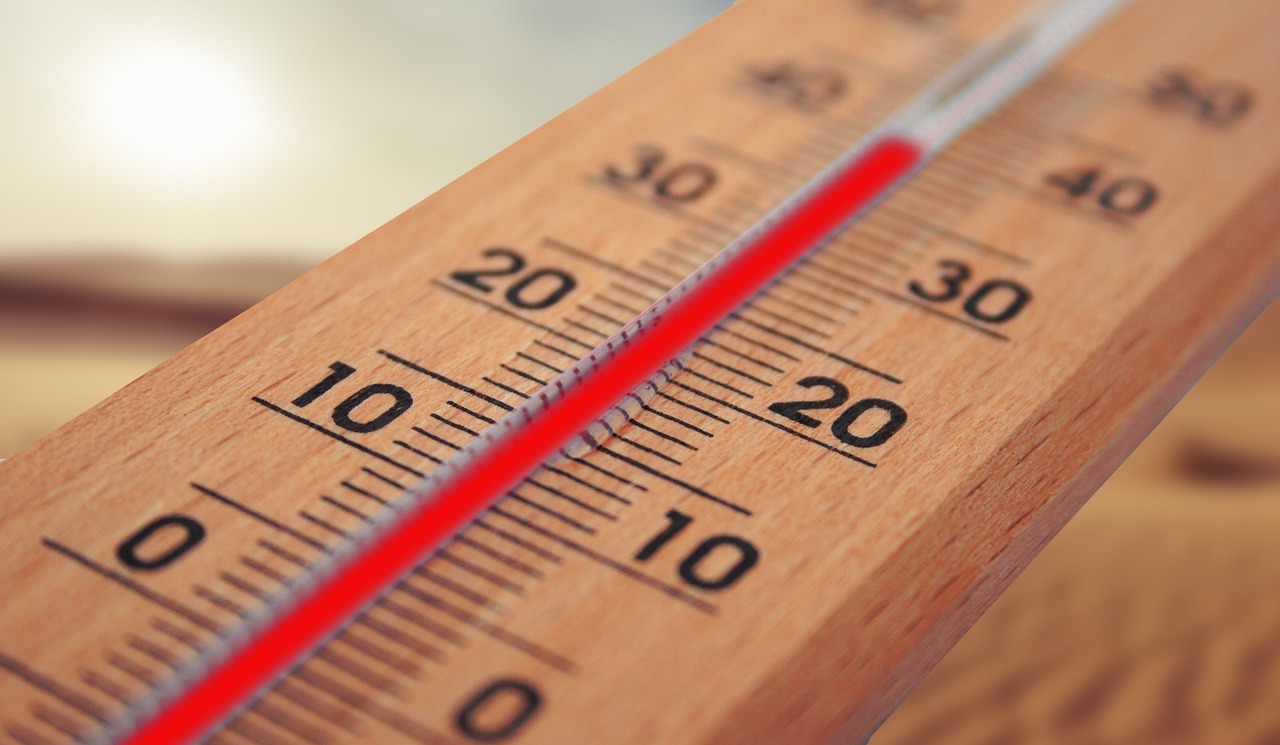The Algarve is a region in southern Portugal known for its beautiful beaches, stunning cliffs, and warm climate. Many tourists flock to the Algarve during the summer months to soak up the sun and enjoy the warm weather. In this blog, we’ll take a closer look at how hot the Algarve gets in the summer months.
What to Expect from the Algarve’s Summer Weather
The Algarve has a Mediterranean climate, which means it has hot and dry summers and mild and rainy winters. The summer months in the Algarve typically run from June to September, with July and August being the hottest months of the year. During the summer months, the temperature in the Algarve can reach as high as 30-35 degrees celsius during the day. The temperature usually drops to around 20-25 degrees celsius at night, providing some relief from the heat, whilst still remaining warm.
It’s important to note that the temperature can vary depending on where you are in the Algarve. Coastal areas tend to be cooler than inland areas, as the sea breeze helps to keep the temperature down. Inland areas, on the other hand, can get much hotter, with temperatures sometimes reaching 40 degrees or higher on rare occasions.
In addition to the temperature, it’s also important to consider the humidity when visiting the Algarve during the summer months. The humidity levels in the region can be quite high, especially in July and August, which can make the heat feel even more intense. It’s important to stay hydrated and avoid spending too much time in direct sunlight during the hottest parts of the day.
Despite the high temperatures, the Algarve is a popular destination for tourists during the summer months. Many of the beaches in the region are equipped with facilities such as umbrellas and sun loungers, allowing visitors to relax in comfort while enjoying the warm weather. Additionally, many of the hotels and resorts in the region have swimming pools and air conditioning, providing relief from the heat.
If you’re planning a trip to the Algarve during the summer months, it’s important to pack accordingly. Light and loose fitting clothing made from breathable fabrics such as cotton or linen are recommended, as well as sunscreen and a hat to protect against the sun. It’s also a good idea to bring plenty of water and to avoid spending too much time in direct sunlight during the hottest parts of the day.
What About the Winter?
The winter months in the Algarve typically run from November to February, with December and January being the coldest months of the year. During this time, temperatures can drop to around 10-15 degrees celsius during the day, and even lower at night. This is much cooler than in the summer, but still a lot warmer than many other places in Europe. However, the region is still a great place to visit during this time, with many activities and events taking place that are not available during the summer months.
One of the main advantages of visiting the Algarve during the winter months is the lack of crowds. While the region is very popular with tourists during the summer, the winter months offer a quieter and more relaxed experience, with fewer tourists and less traffic. Another advantage of visiting the Algarve during the winter months is the lower prices. Hotels, restaurants, and other attractions often offer reduced prices during this time, making it a more affordable option for visitors on a budget.
While the beaches may not be as appealing during the winter months, there are still many other activities and attractions to enjoy in the Algarve. The region has a rich cultural heritage, with many historical and architectural landmarks to explore. Visitors can also take advantage of the cooler weather to go hiking or cycling in the region’s natural parks and reserves. One popular winter attraction in the Algarve is the Christmas markets. Many towns and cities in the region host Christmas markets during the holiday season, offering a festive and enjoyable atmosphere with local crafts, food, and drink. Of course, the beaches are by no means off limits, and they can still be enjoyed at the coldest time of the year.
Despite the milder climate, it’s still important to pack appropriately for a winter trip to the Algarve. While the days may be mild, the nights can still be chilly, so it’s important to bring warm clothing such as sweaters, jackets, and light layers. It’s also a good idea to bring a raincoat or umbrella, as the region can experience occasional rain showers during the winter months. Though it doesn’t rain much in the Algarve, a downpour is never fully off the table.
White the Algarve is primarily known for its hot summers, the winter months offer a unique and enjoyable experience for visitors. The lack of crowds, lower prices, and festive atmosphere make it a great time to explore the region’s cultural heritage and natural beauty. While the weather may be milder than in other parts of Europe, it’s still important to pack appropriately and take advantage of the many activities and attractions available during the winter months.
Summer or Winter Weather?
Regardless of when you visit the Algarve, you are sure to enjoy your time in this beautiful region of Portugal. It doesn’t matter if you choose summer or winter weather, you will always be able to make the most of your time on holiday.

